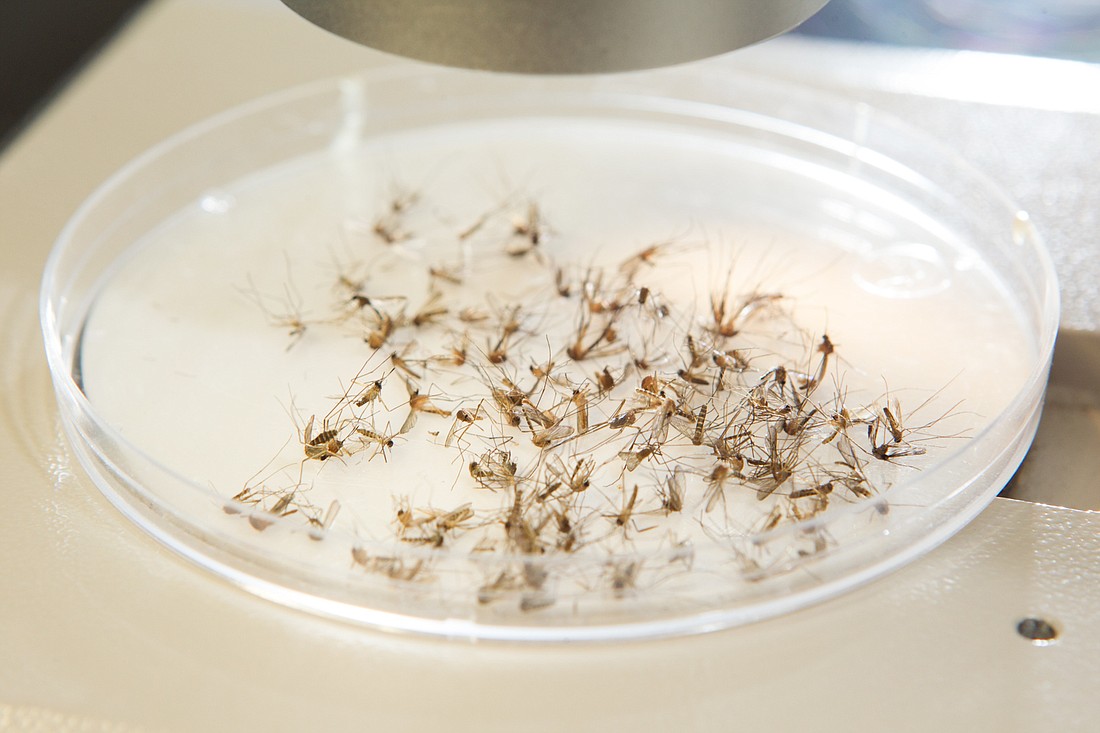- April 12, 2025
-
-
Loading

Loading

Zika has become a household name ever since it became a global epidemic and was confirmed to be linked to microcephaly — a condition that causes severe birth defects in newborn children.
The mosquito-borne virus, whose name results from its discovery in Uganda’s Zika forest in 1947, is common in Africa and Asia. However, it was not widespread in the Western Hemisphere until an outbreak in Brazil occurred in May.
Since then, the U.S. Government, along with the Florida Department of Health and various county governments, have launched mosquito-control measures featuring a combination of resident education, aerial spraying and ground-level spraying, provision of free Zika tests and mosquito traps in potential mosquito breeding areas.
Orange County Mosquito Control Manager Kelly Deutsch said her department has mostly concentrated its efforts on spraying with Permethrin and Sumithrin, neighborhood inspections and resident education. They recently received $135,000 in state funding to purchase new equipment and pay the salaries of 10 new seasonal staff members who go door-to-door looking for artificial containers to dump or treat the water with larvicides.
Deutsch implores individuals who see no concern with the Zika issue because they are not planning on having kids to consider other families who might be. She reminds individuals it’s not the mosquito moving the virus from country to country — it’s humans.
“I understand how people may not see how it could affect them, but unfortunately, it’s important that everybody be aware because you could potentially be a host to the virus, which can get passed on to another mosquito that bites you, and (in turn) affect somebody else who may be of a child-bearing age and is trying to get pregnant,” Deutsch said.
Currently, only two areas in Miami-Dade County totaling less than 1.5 square miles have been identified with active local transmission, said Mara Gambineri, communications director for the Florida Department of Health. On Sept. 1, three Zika-infected mosquitoes were found in Miami Beach — constituting the first such find in the continental U.S, according to the Florida Department of Agriculture and Consumer Services.
Officials have confirmed methods of transmission include mosquito bites from either Aedes aegypti and/or Aedes albopictus, sexual contact, blood transfusion and from pregnant mothers to their babies.
The symptoms include red eyes, joint pain, rash and fever which typically last for seven to ten days. However, four out of five people with Zika do not show any symptoms. There currently is no cure, but a Florida State University press release published Aug. 29 reported potential progress on that front.
A Zika research team identified two existing groups of drug compounds that might potentially be effective in halting replication of the Zika virus and from damaging fetal brain cells that lead to microcephaly. One of the compounds, called Nicolsamide, is already on the market as a treatment for tapeworm.
The team screened 6,000 drug compounds that were either FDA-approved or in the process of FDA approval because it can take years to develop and approve a new drug. However, these compounds can be made available to the public more quickly.
–––
Contact Gabby Baquero at gbaquero@orangeobserver.com